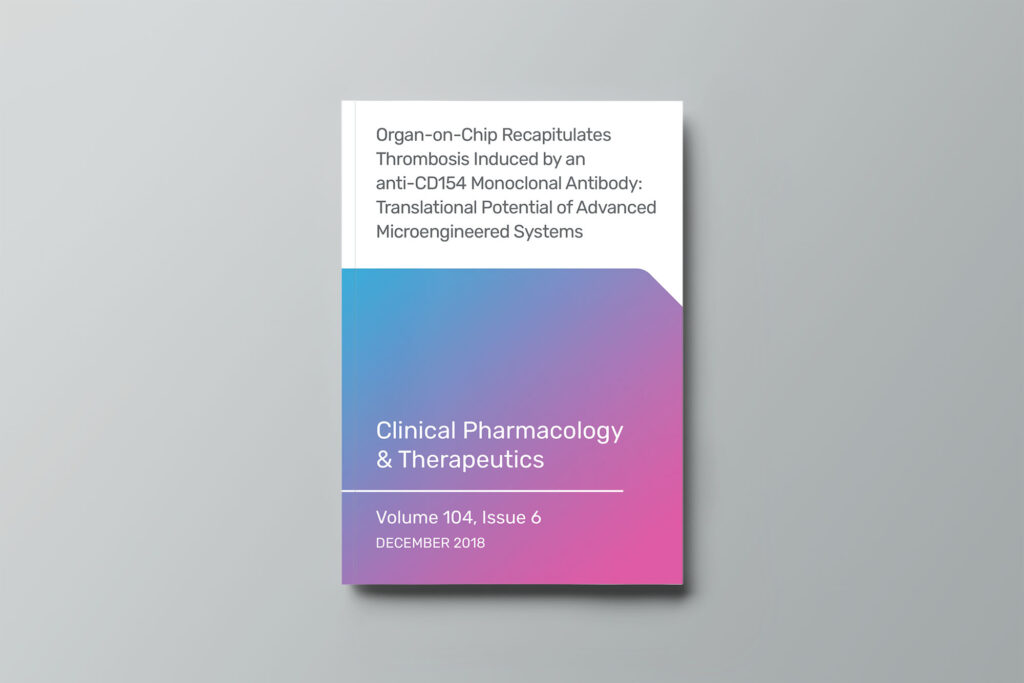Abstract
Clinical development of Hu5c8, a monoclonal antibody against CD40L intended for treatment of autoimmune disorders, was terminated due to unexpected thrombotic complications. These life-threatening side effects were not discovered during preclinical testing due to the lack of predictive models. In the present study, we describe the development of a microengineered system lined by human endothelium perfused with human whole blood, a “Vessel-Chip.” The Vessel-Chip allowed us to evaluate key parameters in thrombosis, such as endothelial activation, platelet adhesion, platelet aggregation, fibrin clot formation, and thrombin anti-thrombin complexes in the Chip-effluent in response to Hu5c8 in the presence of soluble CD40L. Importantly, the observed prothrombotic effects were not observed with Hu5c8-IgG2σ designed with an Fc domain that does not bind the FcγRIIa receptor, suggesting that this approach may have a low potential risk for thrombosis. Our results demonstrate the translational potential of Organs-on-Chips, as advanced microengineered systems to better predict human response.

